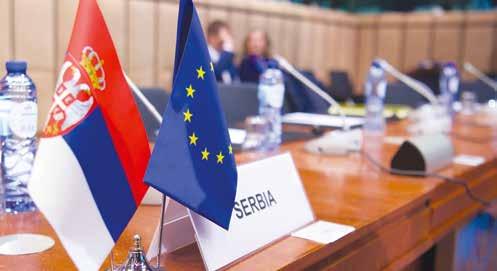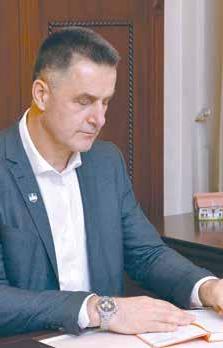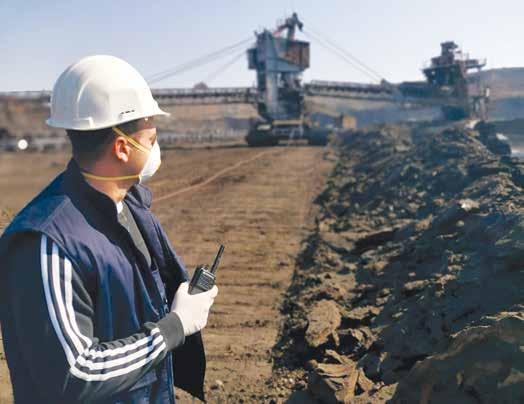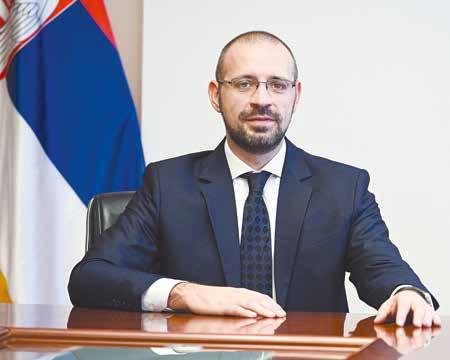INTERVIEW
VIOLETA JOVANOVIĆ, NALED EXECUTIVE DIRECTOR
Pandemic Brings Digitalisation To The Fore In the first wave of the crisis, it is certain that the measures of the Government of Serbia were crucial in preventing the collapse of the private sector. These measures were unexpectedly generous and easy to implement. At the same time, doing business during Covid-19 showed us how important it is to automate procedures and transition to electronic systems, which we will continue to support in the future.
T
he availability of cheaper loans for liquidity, a sector-specific approach and support for development will be crucial in the period ahead, says NALED Executive Director Violeta Jovanović. These kinds of measures would be a logical continuation of the first package of state measures exceeding five billion euros, which exceeded the expectations of businesspeople, says our interlocutor. “That was much-needed help for many companies whose operations were disrupted by the Coronavirus outbreak.” “The area of the economy gathered within NALED is satisfied that state measures included three of our key recommendations for the
10
July
recovery of companies: postponing the payment of taxes and contributions to earnings during the state of emergency; securing favourable credit for liquidity and paying financial support to entrepreneurs and SMEs and their employees, alongside a previously adopted moratorium on loan repayments. These are also convincingly the most significant measures envisaged by almost all European countries,” says NALED’s executive director. “Our package is unexpectedly generous and, with an 11% share of GDP, is almost four times larger than the packages envisaged by Croatia or Bosnia-Hercegovina, whose measures account for three per cent of their GDP. We are also satisfied that the measures were adopted in a relatively short period of time and that they were easily administratively implementable. “On the other hand, the measures were completely linear and targeted support subsequently arrived. The government recently adopted a regulatory framework to provide businesses in the fields of tourism, hospitality and passenger transport with liquidity and working capital from the Development Fund. We will see what the result will be like, but we already have hints that interested in these loans among companies is high.”
• How does the situation look now that the economy is slowly returning to normal? Where do companies face the greatest challenges? - That depends a lot on the sector, on whether it relates to a large, medium-sized or small company. For example, hoteliers face a significantly reduced turnover of guests compared to the same period last year and will need more time to return to the 2019 level of operations. Tourism, but also passenger transport and craft services, were initially forced to completely suspend operations and they will need time to make up for that which they’ve lost. NALED conducted a survey on the eve of the adoption of the measures that showed, among other things, that 63 per cent of companies operating in the sectors of tourism, hospitality, transport, environmental protection and agriculture expect their income to be halved due to the crisis. This is not easy to compensate for and I believe that companies are faced with finding a new development strategy and ensuring the continuity of work, which NALED will support them in doing. One of the biggest challenges is also to prepare for a possible second wave and maintain operations until the threat of the virus has passed completely.












